HAPPY DAYS are when we get to see a hugely gifted actress hold the stage almost alone, practically without moving, for two hours, and conjure up the entire universal human experience. That is EXACTLY what happened this week when Brooke Adams and her husband and co-star Tony Shalhoub appeared in Samuel Beckett’s OTHER absurdist masterpiece HAPPY DAYS, presented by Commonwealth Shakespeare Company in residence at Babson College. This is simply one of the best productions of the year and features a performance of incalculable humanity and insight. Adams is mindblowingly honest, winsome, funny, exasperated, soulful, tragic, goofy, fearful– and a myriad other states of mind and emotions. It’s a virtual monologue of a performance in a superficially simple but deeply complex work about our plight on this earth: trying to make it through each day, striving for connection and meaning in what may be a random and barren universe. That the play was a huge hit with inmates at San Quentin where it was once famously performed, gives you some idea of the territory and conditions suggested here, and the frame of mind one needs to adopt in order to enter the world of this play.
As the lights go up, Adams as Winnie, appears buried up to the waist in dirt, in a sandy brown landscape of twigs and dying shrubs, beneath a bright blue sky with nothing visible on the horizon. Her head is down and she is apparently asleep, when suddenly a bell rings, she wakes up, stretches, sighs, smiles a vacant, rote smile and beams: “Another heavenly day.” Her first words make us laugh out loud, not only at the irony, but at the immediate recognition of ourselves rising each and every day, trying to make it through to the end with whatever business we are about. And to be sure, all of that business appears inconsequential. Adams, with almost nothing at her disposal except a parasol and a bag full of “stuff” plopped next to her, is so deeply relatable, human, honest, and recognizable in this absurd situation, that our empathy for her, ourselves, and our mutual plight– is effortless.
In the course of her day, we become aware of the man in her life who is nearby–Willie (Tony Shalhoub)– also struggling up from the dirt, his back to us, in filthy clothes, a soiled hanky and a tattered boater on his head, which he meticulously adjusts at a cocky angle. Again, we find ourselves laughing aloud at Willie’s attempt to make himself presentable in the void. Why? What’s the point? How sad. How funny! How heartbreaking. Winnie and Willie proceed to act out the generic and picayune tropes of a couple’s everyday life– her yammering incessantly about nothing and everything: religion, romance, mortality, while brushing her teeth, putting on lipstick, begging him to respond, anxious to be seen and recognized and loved, all in a series of non-sequitors deeply familiar to us as attempts at “mattering.”
Adams shapes Beckett’s repetitive but dense language–as loaded as the gun next to the toothbrush in Winnie’s bag– into mini plays about identity, connection, value, meaning. Adams manages this daunting solo script effortlessly, performing in the first act only from the waist up, and in the second act only from the neck up! She is now buried even more deeply, ever closer to disappearing entirely into the ground. This condition leaves her physically stranded except for her extraordinarily malleable and expressive face which in addition to her relentless speech, must convey everything. And it does. Thoughts and feelings flash across the stage of her visage, clear, articulated, and vivid as she flicks a tongue, circles her eyeballs around the whites, and twists her expansive maw of a mouth into alternating masks of tragedy, comedy, and all shades of love, desperation, and yes– happiness in between.
As Willie, Shalhoub unearths little nuggets of divine physical comedy like slapstick, especially in the second act, and his rare but perfectly timed, pregnant utterances, land like punch lines to Winnie’s incessant stream of straight talk. Only one moment was off–when Winnie tosses something backward over her shoulder at Willie, and it’s immediately tossed back. A beat should be taken there, between the toss and the toss back. Much funnier.
The play challenged its first audiences in 1961 with a lack of familiar dramatic conventions: it has no plot, no developed characters, no rising action, climax, denouement, etc. etc. But Beckett and this extraordinary duo, marry form to function, conveying the most universal drama of all– the human struggle to find the point of it all, and understand if we, in the end, matter. “Woe Woe is me to see what I see” says Winnie quoting Hamlet. No one better than the fearless Adams to lead us on that fearful journey where illusions gradually fall away to scorched earth. It all matters here, and then some. DO NOT MISS Brooke and Tony as Winnie and Willie, and know you can count on HAPPY DAYS through 11/23!

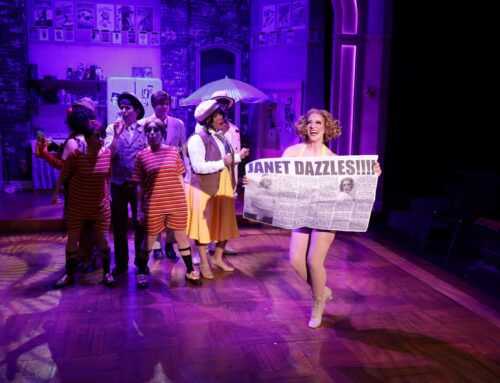
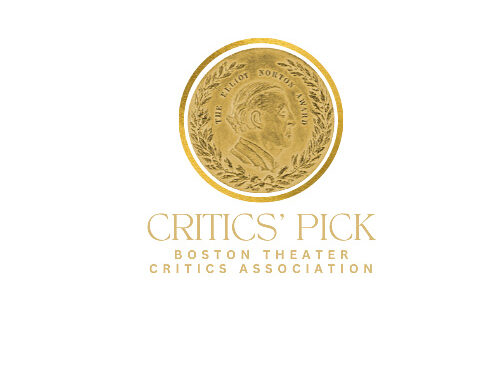
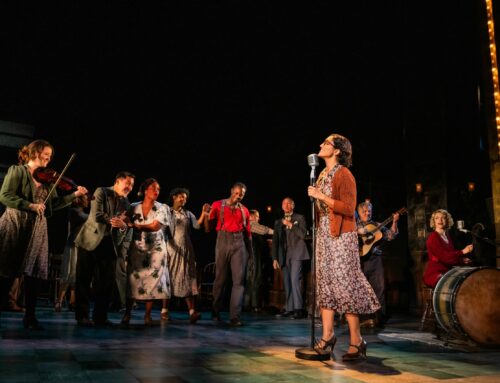
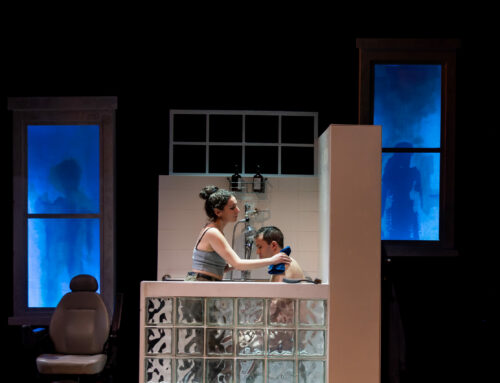
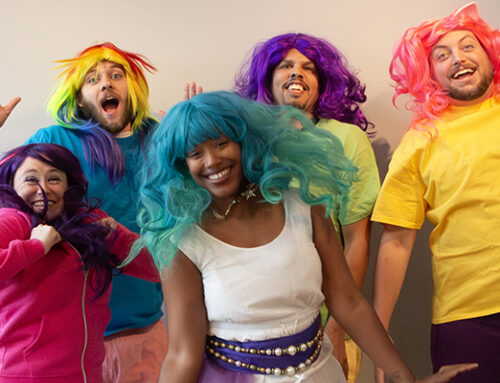
Leave A Comment
You must be logged in to post a comment.